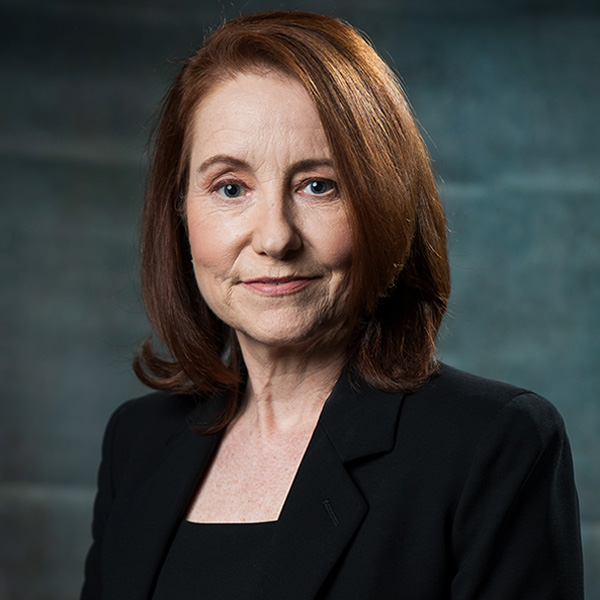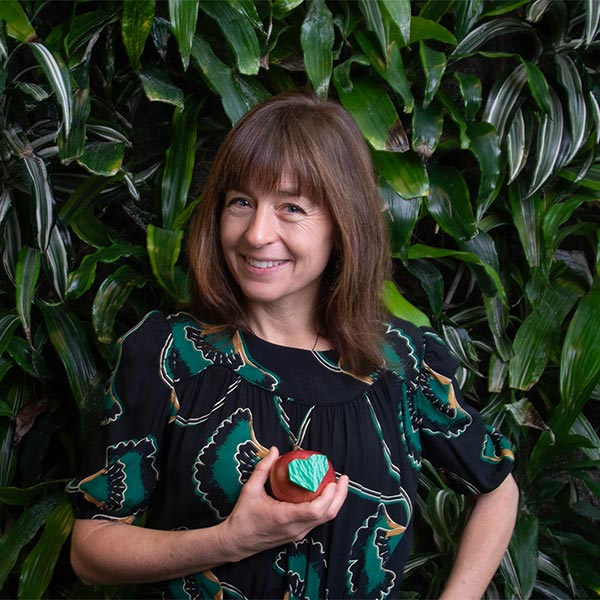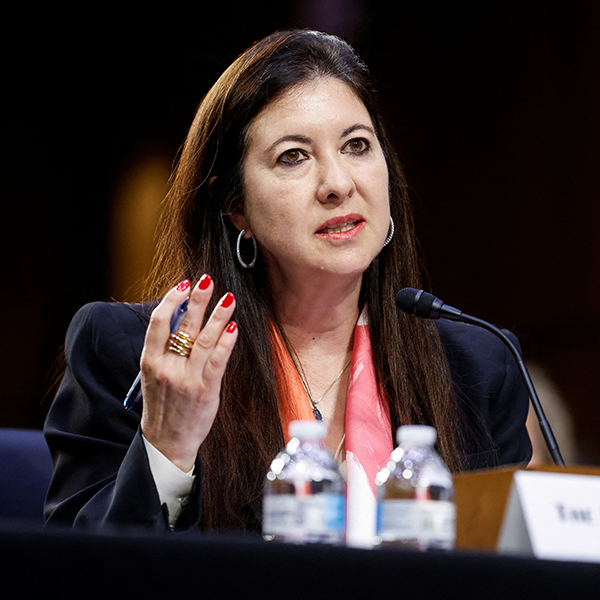When Gail Simmons began working as a judge on Top Chef, she had no way of knowing that she was about to become part of an enduring cultural phenomenon.
“We were doing something so completely new that I had no expectations either way,” says Simmons, BA’98, a food writer and fixture on the Bravo network television program, which recently aired its milestone 20th season.
“We’re really proud looking back at those early years because we were sort of flying blind and just going on our gut instincts and it worked,” Simmons says.
From the start, the popular series featuring professional chefs was “instantly credible in the food world,” Variety magazine noted. A recent New York Times feature declared that Top Chef “has changed the way Americans eat.”
For Season 20, Top Chef filmed in London and featured ‘cheftestants’ who had previously competed on versions of the show in their respective countries. There are 29 international editions of Top Chef.
What impact does Simmons think the show has had on food culture?
“I think now in hindsight after 20 seasons and five spinoffs and all the other extensions of the show, as well as really seeing the extraordinary success of the chefs on the show once they leave the show – which I think is the biggest impact we’ve made – I can say that we have changed the economy of restaurants in America, which sounds grandiose, but truthfully, it’s not.”
Restaurants have opened, opportunities were created, television shows launched, and book deals were made, all thanks to Top Chef’s popularity. “It’s fact, it’s statistics, its dollars,” says Simmons.
Some of the chefs who appeared on the show early on are now some of the biggest leaders in the industry, Simmons points out, rhyming off names like Stephanie Izard, Richard Blais, Carla Hall and Kwame Onwuachi. “I’m not saying we did any of those things for them, but we certainly gave them a platform that propelled them in a way they wouldn’t otherwise have had.”
Buddha Lo, the executive chef of Huso in New York, and a recent Top Chef champion, would agree. He told the New York Times, “After I won, the restaurant had like a 500-person wait list for six months.”
Viewers have become more noticeably savvy about culinary matters over the years, says Simmons. “We’ve noticed a huge assent in their education, in their cravings, in their engagement with the show – we have an audience that knows a lot about food… And they just have a language around food that I think wasn’t there 10 years ago, 15 years ago.”
Twenty seasons on, the show is still having an impact. Top Chef picked up five 2023 Emmy Award nominations, including Outstanding Reality Competition Program. Toronto Star columnist Shinan Govani recently wrote that Simmons and her “high-wattage congeniality” deserve a large part of the credit for the show’s success.
The most logistically challenging season of Top Chef by far, Simmons says, was filmed just months after the start of the COVID-19 pandemic in 2020. It involved a “bubble” for the large crew, PPE, and COVID testing every 48 hours.
“The complicated part in the end wasn’t just the pandemic,” she says. “We were living in Portland, Oregon in a time that I thought of as like a triple pandemic because not only was there the virus, but there were the worst wildfires that America had ever seen happening in Oregon while we were shooting so that forced us to [shut] down production for several days.”
There was also an enormous amount of political unrest in America because of the pending presidential election with huge protests on both sides in Portland, she says.
“When I look at what our producers went through to not only produce the show, but to keep us all safe and calm and to make the quality of show we made that season, feels unfathomable and I’m actually really, really proud of that season and what we were able to accomplish.”
Simmons earned an undergraduate arts degree at McGill in humanistic studies, with a concentration in anthropology and Spanish. For someone who was unsure of what she wanted to do next, Simmons has forged a unique and highly successful career, establishing her culinary bona fides, learning about the business and marketing of restaurants, journalism, and, of course, Top Chef.
“I really had no idea where this job was taking me. I had this inkling that I wanted to work in food and that I wanted to write about food, or be in the media, but I never held too fast to what that meant,” Simmons says reflecting on her career path. (Her earliest articles about food and restaurants appeared in the McGill Tribune while she was still a McGill student.)
“I think that the success I’ve had came because I wasn’t just looking straight ahead of me. I was looking to the left and the right and I was saying yes to opportunities, even the ones that didn’t necessarily feel like they were on that exact path, but I understood that sometimes you have to be a bit circuitous.”
After graduating from a culinary school in New York, Simmons wanted to work for the now defunct Gourmet magazine in its test kitchen. “But my culinary school advisor suggested I spend time in restaurants first to really understand the language and get my skills up. And I did that even though it felt at the time like a departure from my goal. But in the end, having that kitchen experience allowed me to have authority, confidence, and it became a big part of why everything else came after it.”
She then worked for Vogue magazine’s food critic Jeffrey Steingarten, followed by a position on famed chef Daniel Boulud’s marketing and PR team, before landing a job with Food & Wine where she worked for 15 years. While Simmons was working at Food & Wine, the magazine was approached about becoming involved in a new TV show that would focus on competitions between chefs. The show in question, Top Chef, was looking for someone associated with the publication to serve as one of its judges.
“The question became, ‘Well, who’s going to be the guinea pig?’” said Simmons in a recent oral history of Top Chef published by The Hollywood Reporter. “The guinea pig was me.”
Along the way, Simmons published Talking with My Mouth Full: My Life as a Professional Eater and a cookbook, Bringing It Home: Favorite Recipes from a Life of Adventurous Eating. Another book is in the works.
Married to a Montrealer, Simmons returns to the city often and has high praise for its food scene. (She once ranked it as the top food city in North America in an interview with the entertainment website The A.V. Club.)
“It really, I think, is one of the great eating cities of the world. I don’t think it gets nearly enough recognition and I think it’s not just one or two restaurants. It’s an entire culture of eating that I think brings the best of Europe and North America together,” she says.
“I think there’s just so much happening that makes Montreal an incredible place to eat and cook and shop for food. It’s very inspiring every time I’m there.”
With 20 seasons of Top Chef under her belt, Simmons says she is still having a lot of fun.
“I’ve been able to create a path for myself that has given me so much satisfaction, incredible relationships, I’ve traveled the world, I’ve eaten incredible food … I’ve also really met amazing people and I’ve learned about the cultures of the world.”


